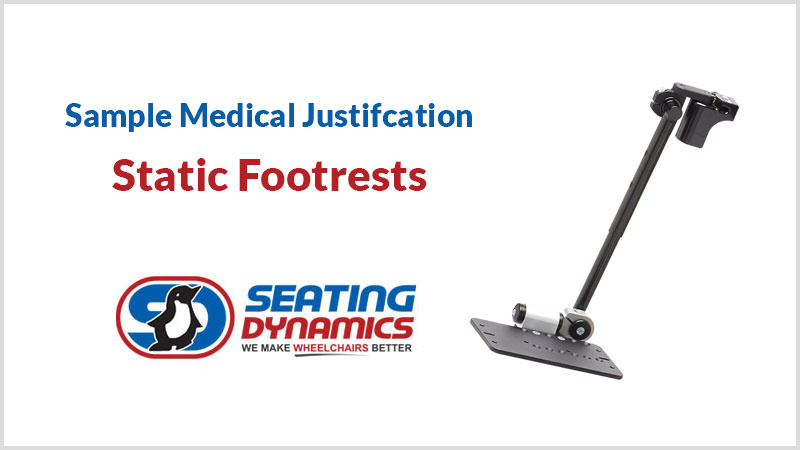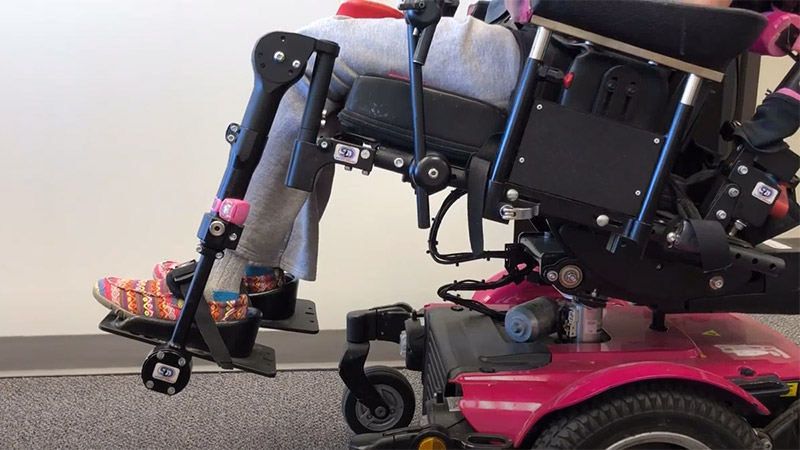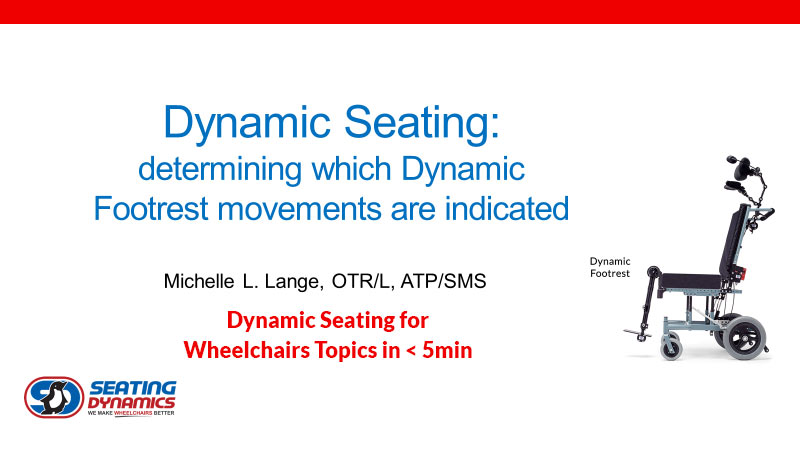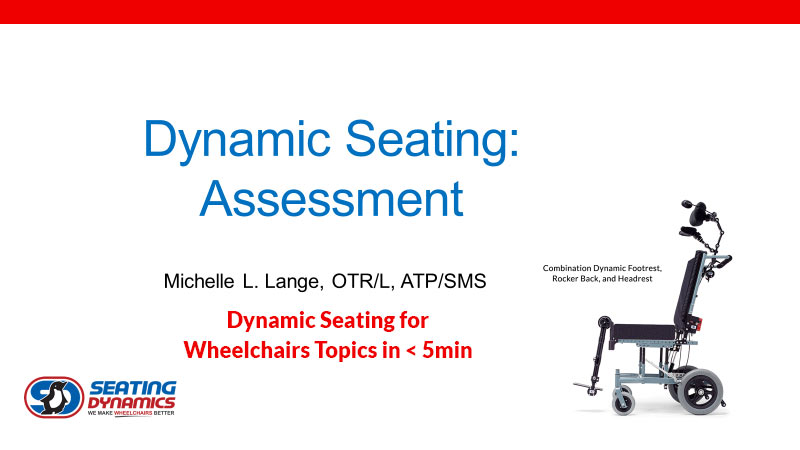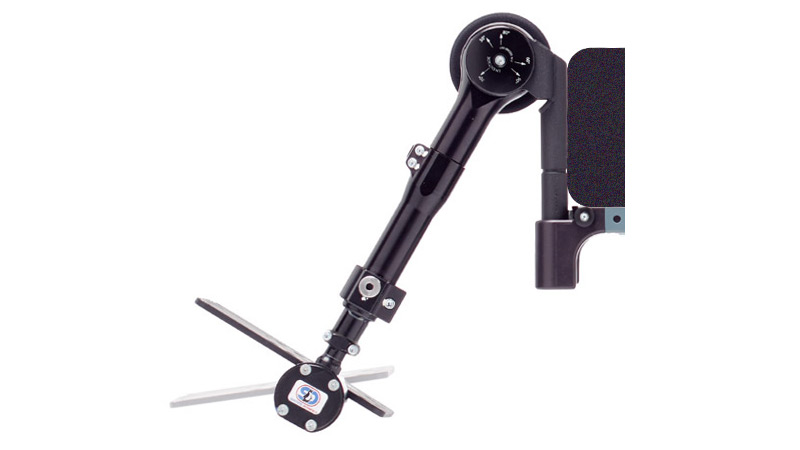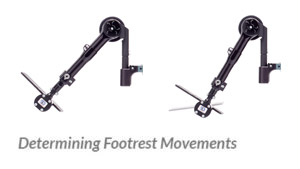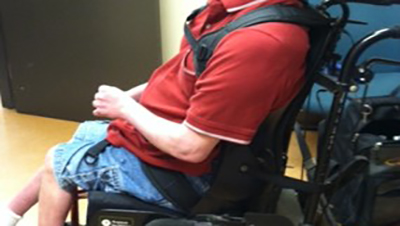Sample Medical Justification – Dynamic Footrests
The following are sample medical justification wording for the Seating Dynamics Dynamic Footrests for wheelchairs which may be used in funding…
Sample Medical Justification – Static Footrests
The following are sample medical justification wording for the Seating Dynamics Static Footrests which may be used in documentation, such…
Kylie’s Dynamic Footrests Diffuse Extension
When Kylie used to push on her footplates, her entire body extended and she moved out of position in relation to her seating system. With Dynamic Footrests, the footrests move in response to her force and so she remains in a seated position.
Quick Class: Dynamic Seating – Determining Which Dynamic Footrest Movements are Indicated
Dynamic Footrests provide movement in 3 directions: telescoping downward, knee extension, and ankle plantar flexion. This Quick Class discusses how to determine which movement to select for an individual client.
Quick Class: Dynamic Seating – Assessment
It is not typically realistic to trial Dynamic Seating components as the frame may need to be modified. Instead, we can simulate the effects of Dynamic Seating during the assessment to determine if these components are indicated.
Movement at the Ankle – Dynamic Footrest Plantar / Dorsi Flexion Option
When seated in a wheelchair and the lower extremity is extended, extension may be seen at the hip, knee, and even ankle (plantar flexion).
How to Determine Which Dynamic Footrest Movements are Indicated for an Individual?
Dynamic Footrests provide up to three types of movement – a telescoping downward movement, knee extension, and plantar/dorsi flexion.
Dynamic Seating and the Restraint Debate
There are times when a wheelchair seating and mobility team, after careful evaluation and problem-solving, makes specific recommendations – only to hear that these well thought out interventions may be considered to be a restraint. So just what is considered a restraint and how does this affect Dynamic Seating?
Myra Vasquez-Romero, OTR, ATP
Regional Manager, Lightning Mobility Evaluations, LLC Former Clinical Coordinator Outpatient Pediatric Seating and Mobility Clinic TIRR Memorial Hermann Pediatric Outpatient…
Judy Garber
“Ted, I just wanted to send one last e-mail to let you know I installed the dynamic footrests on Amber’s chair yesterday. She is very happy with how they move and work for her. It’s an amazing concept, and so beneficial for someone like her. Thanks again for all the help with getting her the correct parts.”


